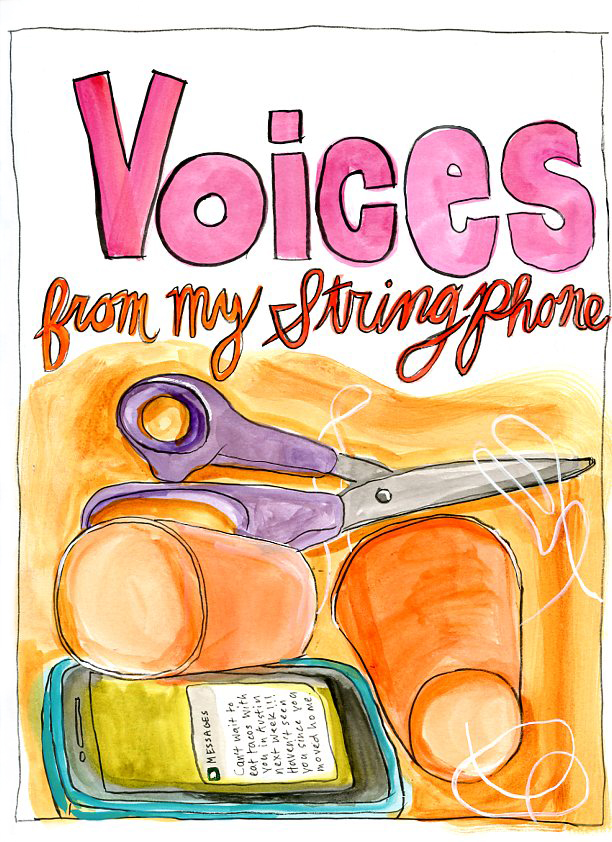The Lilith Blog
June 14, 2017 by Toby Israel
Let’s Talk about Israel: Grappling with Dissonance in Jewish Identity
 “If the Arabs didn’t kill me, my wife would.”
“If the Arabs didn’t kill me, my wife would.”
Did he just say that?
After the split second necessary for me to process his words and maintain a neutral expression, I answer:
“Why’s that?”
“She doesn’t want me walking through the Arab neighborhood.”
Obviously.
We are talking, of course, about which gate to use to exit the kotel.
I think he means it as a joke, but it’s not funny.
On this visit to Israel, I have been floored multiple times by this kind of abject fear, prejudice and even hatred—veiled and otherwise—toward the vaguely-defined “Arabs.”
- No Comments
June 13, 2017 by Eva Hutt
Under the Wings of the Shechina
 Kaddish is said only where 10 Jewish people constitute a prayer minyan. For the most Orthodox minyans, person equals male. And in most places, only the Orthodox gather for daily prayers; certainly they are the only ones who rise early enough to complete prayers in time to get to work by 8:00 am. That is how I found myself frequently going to the 6:35 am Orthodox morning minyan where my brother Steve prays twice a day, to say kaddish for my father.
Kaddish is said only where 10 Jewish people constitute a prayer minyan. For the most Orthodox minyans, person equals male. And in most places, only the Orthodox gather for daily prayers; certainly they are the only ones who rise early enough to complete prayers in time to get to work by 8:00 am. That is how I found myself frequently going to the 6:35 am Orthodox morning minyan where my brother Steve prays twice a day, to say kaddish for my father.
Going to daven with this community disrupts my decades-long, sacred morning routine, forcing me to get up 45 minutes earlier than usual, shortening my run with my dog and rushing me through my morning coffee. That run is normally the venue for my morning prayers. Mumbling as I jog along, pausing out of respect for the Divine while I locate and pick up Leila’s shit in the dark, my daily prayer would be both recognizable and shocking to a traditional Orthodox davener. I know just enough Hebrew to inflect a substantial portion of the prayers into female gender, though doubtless I’ve got a lot of the grammar wrong, so God only knows what I’m really saying. And it’s not just the gender I bend. Prayers I judge too ethnocentric fly out of me altered. I bless the Shechina, God’s female presence, for strengthening Israel with vigor and justice. Rather than bless Her for not making me a heathen, I bless Him for making me Jewish.
I’m unable to explain to myself why I now go to this morning minyan. I did not say kaddish when mother died, and my father did not ask this of me. Nor did he do it for his parents.
Nevertheless here I am, dressed in my work pants, quietly opening the women’s entrance to the classroom that serves as our prayer space.
- No Comments
June 7, 2017 by Avigayil Halpern
Ivanka Shows How “Jewish Woman” Is Not the Same as “Jew”

Photo credit Michael Vadon
Earlier this year, I—and many others who write for my campus newspaper—received a vitriolic email. The writer ranted about universities and their stifling political correctness, spewed racist claims against immigrants, and railed against Muslims. Then, several paragraphs in, comes this: “the Real Power, which is Jewish Power” [sic]. According to the neo-Nazi who sent the email, “[political correctness] says we are not supposed to notice Jewish power even though Jewish Power rules America.”
The idea that “Jewish power” is a force that secretly controls governments and political movements is an old and noxious trope, classic anti-Semitism. It’s often easy to recognize — my emailer was upset about a purported tactic of “divide-and-rule by Jewish elites.” Sometimes, though, context masks this sentiment: for example, Ivanka Trump.
- No Comments
June 6, 2017 by Mindy Isser
Jewish Women on the Ramparts for Graduate-Worker Unions
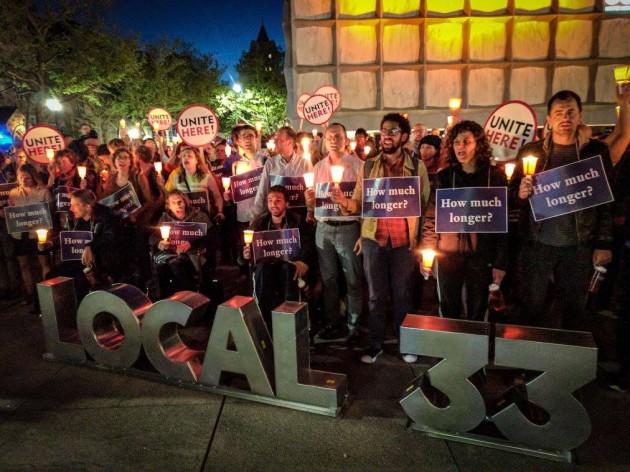
Yale University graduate students at a vigil for the hunger fast. (Photo from Local 33-Unite Here’s Facebook page).
“It’s not something I ever thought I’d have to do to get the university I attend, and work at, to follow the most basic labor law,” said Lena Eckert-Erdheim. She’s a graduate student worker at Yale University, and she’s talking about her eight-day fast, part of the #FastAgainstSlow. Though she wasn’t raised in a religious family, Eckert-Erdheim said that for her “fasting has a spiritual element to it… it’s an act that speaks very powerfully to many traditions.”
Why did Eckert-Erdheim decide to go on a hunger strike? In February, eight of the nine departments at Yale whose graduate student workers voted on whether to join a union, voted yes. However, the administration has refused to acknowledge—let alone negotiate with—the union. Instead, they have appealed the vote to National Labor Relations Board (NLRB). Graduate workers are seeking, among other things, improved child care, better health care, and a sexual harassment grievance procedure. In response to the administration’s continued refusal to negotiate, grad workers at Yale embarked on the hunger strike that Eckert-Erdheim participated in, which lasted until Yale’s commencement on May 22.
- No Comments
June 2, 2017 by Eleanor J. Bader
How This Jewish Glass Artist Juggles Work and Family
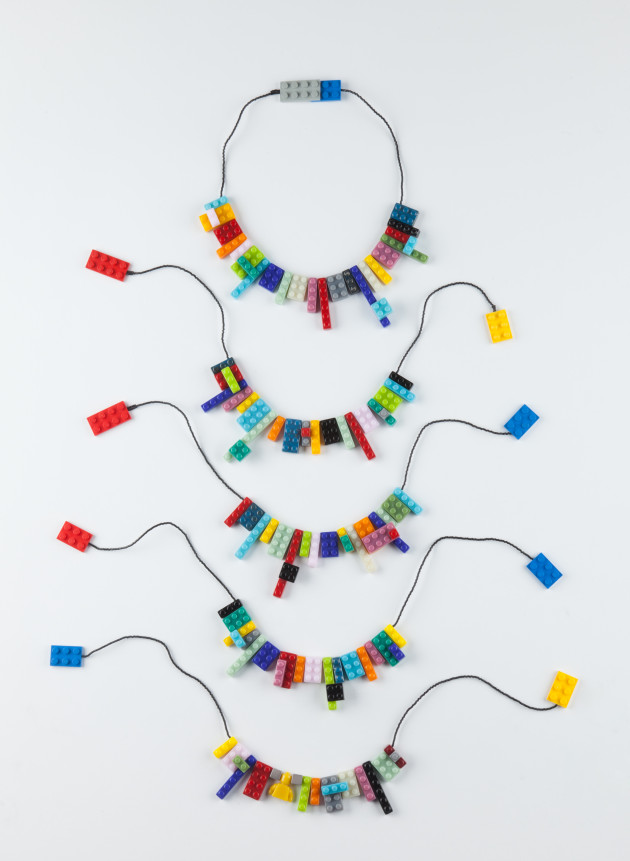
The first thing I notice about artist Dena Pengas is her asymmetrical, bold, and multi-colored jewelry. At first glance, it appears as if her necklace is made of Lego pieces, but as I get closer I realize that each rectangle is, in fact, glass. The overall effect is elegant, whimsical, and wonderfully cheerful. Later, when we talk, she tells me that she hopes that this piece—one of many that she has created—will “spark nostalgia is the wearer and viewer.”
The 38-year-old Brooklyn-based Pengas recently spoke to me about her work. As the conversation moved from topic to topic, we touched upon parenthood, marriage, work-family balance, and what it means to be socially responsible in a time of backlash and retrenchment.
- No Comments
May 31, 2017 by Helene Meyers
Serious Missteps in Dirty Dancing Remake
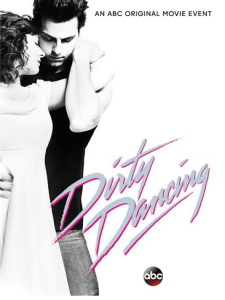 I was critically warned not to watch ABC’s remake of “Dirty Dancing”. But I’m a Jewish feminist film critic, so I don’t simply follow directions. I also know that remakes are notoriously and often unfairly judged only in relation to the idolized original. So I wanted to see for myself the 2017 reinterpretation of this iconic 1987 film about a Jewish smart girl who discovers that she has a body as well as a mind.
I was critically warned not to watch ABC’s remake of “Dirty Dancing”. But I’m a Jewish feminist film critic, so I don’t simply follow directions. I also know that remakes are notoriously and often unfairly judged only in relation to the idolized original. So I wanted to see for myself the 2017 reinterpretation of this iconic 1987 film about a Jewish smart girl who discovers that she has a body as well as a mind.
Thank the Goddess, I didn’t watch it with commercials on Wednesday night, but I did give in to movie masochism over the Memorial Day weekend, courtesy of Hulu. Much as I would just like to forget about this astonishingly bad film, I think the specific left feet of this remake demands attention through a Jewish feminist lens.
Yes, as many professional critics and lay viewers note, the dancing is uneven at best, abysmal at worst, and I agree with the tweeter who suggested that Patrick Swayze must be turning over in his grave. Yes, the decision to have the 2017 Baby/Francis (Hannah Breslin) and Johnny (Colt Prattes) sing as well as dance doesn’t inspire confidence in the aesthetic vision undergirding this film. But it’s what the film does to Jewish smart girls and to feminist politics in 2017 that is depressingly instructive.
- 1 Comment
May 30, 2017 by Rishe Groner
What We Learn From Ruth: The Brazenness of Vulnerability
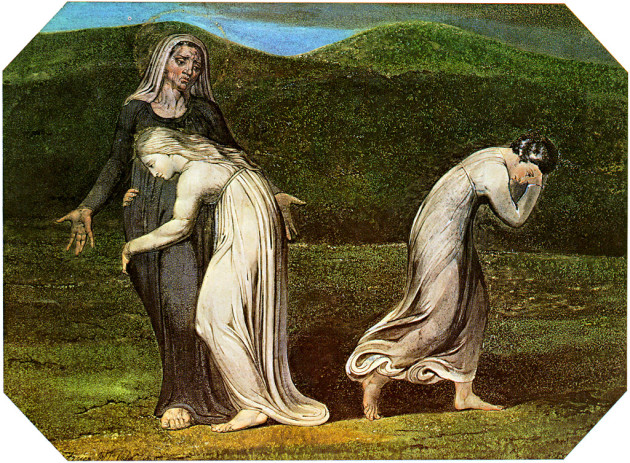
A 1795 William Blake painting of Naomi asking Ruth and Orpah to go back to Moab.
Judaism has no shortage of feminist heroines—it’s what we learn from them specifically that’s often puzzling to the modern day feminist. We struggle to map our knowledge of present day concerns for the everyday woman against ancient mores while witnessing the inherent strengths in those who bucked the trend.
One such figure is Ruth, a woman I’ve always puzzled over, for her wants and needs are no mystery—but to any of us raised within Judaism, they seem awkward and bizarre. Why would a Moabite princess, privileged and pampered in her position, choose to follow an Israelite widow back to a ravaged land of famine? Why would a woman choose to leave behind the only life she’s ever known to learn at the feet of an old, wise woman? It seems contrary to most of what we learn from society, really.
And it’s not normal, that’s clear. Even Naomi, the Jewish mother-in-law of Ruth, recognizes the societal trend being ignored by her devoted daughter-in-law. Though Ruth’s husband—the son of Naomi—is gone, and Naomi bids her daughter-in-law adieu with a wish to find another husband and bear children, she refuses. She chooses to follow Naomi: for your people are my people, your land is my land, your God is my God.
- No Comments
May 26, 2017 by Sarahbeth Caplin
Where Your Sense of Adventure Went
 It’s not who I am, it’s just a sickness.
It’s not who I am, it’s just a sickness.
These are the words you want to protest to your five roommates in Florence, Italy, when they bring up the idea for a weekend getaway to Paris. Who says no to Paris?
Evidently, you do—when “travel expenses” mean hitchhiking and “hotels” mean couch-surfing: the trendy practice of seeking out strangers to, literally, sleep on their couches, saving greatly in dollars but risking expensive compromises to personal safety.
“Come on,” they urge you. “Where’s your sense of adventure?”
This is the reality, despite all the adventurous heroines you love and admire in books and movies: you don’t actually have any sense of adventure. At all. That’s because you have anxiety instead.
- No Comments
May 25, 2017 by Eleanor J. Bader
A Philanthropy Office That’s a Performance Space, Too
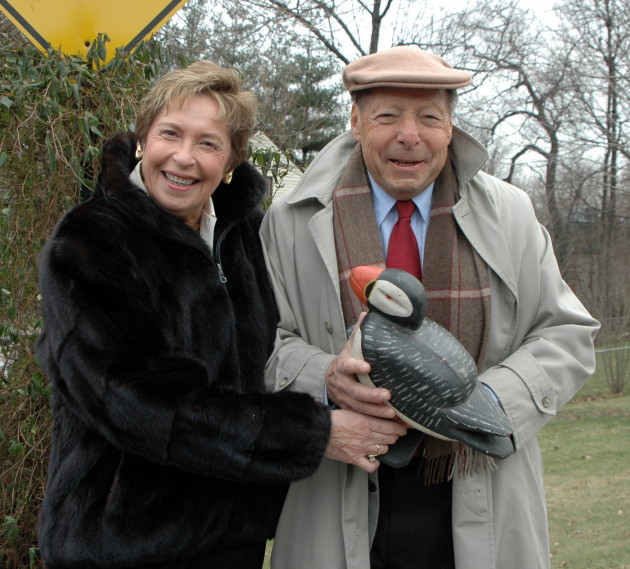
Puffin Foundation, Ltd. Executive Director Gladys Miller-Rosenstein and President Perry Rosenstein during renaming of E. Oakdene Ave. to Puffin Way by the Town Council of Teaneck.
Once upon a time, the orange-beaked puffin—native to the waters of the Northern United States—was on the verge of extinction. But after concerted efforts by a slew of determined people, the puffin population is again flourishing.
The founders of the Teaneck, New Jersey-based Puffin Foundation see the bird’s resurgence as a metaphor and they have made it their mission to support movements that might otherwise falter. As their website explains, the Foundation strives to “open doors of artistic expression by providing grants to artists and arts organizations that are often excluded from mainstream opportunities due to their race, gender or social philosophy.”
In practical terms, the 37-year-old philanthropy has supported a wide array of visual artists, writers, filmmakers, poets, musicians, journalists, and photographers. Among them are names that are likely familiar to Lilith readers, including Agnes Adler, Alice Matzkin, and Lilly Rivlin. Groups—and media—have also benefitted from the fund’s largesse: The Nation, In These Times, Jewish Currents, Mother Jones, Salon, and Jews for Racial and Economic Justice have received grants.
The Puffin Foundation’s Executive Director, Gladys Miller-Rosenstein, met with Lilith reporter Eleanor J. Bader in mid-May in the group’s spacious award-and-art-filled office.
- No Comments
 Please wait...
Please wait...
